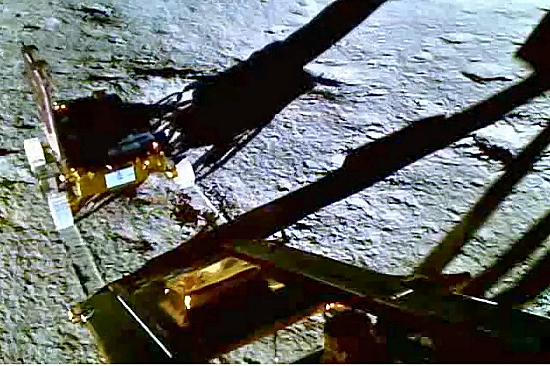
The 21st century is seeing some monumental shifts in the capacity and capability of nation-states to achieve great things. The Russian remnant of the former Soviet Union, the place where the modern exploration of space began, has seen its acumen and expertise eroded while others like China and now India have demonstrated a growing capability to achieve key space milestones.
Roscosmos is the successor to the Soviet Union’s space program. Today it continues to launch Soyuz capsules to the International Space Station, ferrying cosmonauts, astronauts and freight to the circling low-Earth orbit laboratory. The technology being used is fifty years old with some hardware and software upgrades. Russia’s exploration of planets like Venus is moribund. And the latest failure, Luna 25, a mission to plant a robot lander near the Moon’s south pole crashed when a thruster fired for 43 seconds too long.
Luna 25 followed the 1976 Luna 24 mission. This 48-year gap itself demonstrates just how far Russia’s scientific space capability has declined since the breakup of the Soviet Union. And although future Luna missions are planned, many will borrow technology from other countries’s space agencies and non-Russian companies. The timetable for Russia’s return to meaningful science and exploration of the Moon which was to follow the year-long Luna 25 mission would have had a Luna 26 and 27 follow-up. The legacy Soviet Union, Venera program exploring the planet Venus, seems even further compromised by the Luna 25 failure.
Meanwhile, other nations are stepping into the gap left by Russia’s absence. Most notably this week it is India that has performed what Russia failed to do: land near the Moon’s south pole, the first national space program to achieve this feat.
India’s space agency is called ISRO. It has been developing its launch capability and has plans to send a crew into space in the next few years using a space module of its design and manufacture. ISRO tried to land on the Moon a few years ago with the Chandrayaan-2 mission. It crashed. But this time the Chandrayaan-3 lander with an onboard rover performed perfectly making a soft landing. Yesterday the rover descended by ramp to the surface to begin a mission planned to last less than one lunar day (about two Earth weeks). It is unlikely that Chandrayaan-3 will survive the deep freeze of the two-week lunar night. India joins the U.S., China, and the former Soviet Union as the only countries to land on the Moon.
Leroy Chiao, a former NASA astronaut who flew three Space Shuttle missions and copiloted a Russian Soyuz to the International Space Station, has written about the current state of the Russian program. In an opinion piece appearing on CNN’s website, he writes about the international prestige gained by the Soviet Union when it launched Sputnik in 1957. This was followed by the first animal sent into orbit in 1957 and the first human in space in 1961. These successes profoundly impacted the world demonstrating the capacity of the Soviet Union to achieve great technical and scientific feats.
But now, Chiao notes when comparing Russia’s failure and India’s success in the last week, that the former, unlike the United States, China, the European Union, Japan and India have all surpassed the nation that inherited the Soviet Union’s space successes. The disintegration immediately followed the collapse of the Soviet Union leaving a cosmonaut stranded on the Mir space station for more than a year. Without U.S. support, Mir would have ended with a human tragedy.
And without the U.S. buying seats on Soyuz flights and other national space program partners, Russia’s ISS presence may have been further compromised. The Soyuz filled the gap between the last Space Shuttle missions and the beginning of U.S. commercial space partners, specifically SpaceX. Other than continued presence on the ISS there is very little for Russia to brag about its current space program.
But now even Soyuz spacecraft have been compromised with one having to be replaced while at the ISS, and another found with a hole in it while parked at the space station. As Chiao notes, “Russia’s bedraggled space program mirrors the state of the nation itself.” Instead, he calls what is happening in Russia lamentable and further evidence of a nation that no longer leads in engineering and science in space. China has surpassed it. India appears to be on the way to surpass it. Others soon may follow. What a sad statement about the place where humanity first made it to space on the way to reach for the Moon and beyond to the stars.








